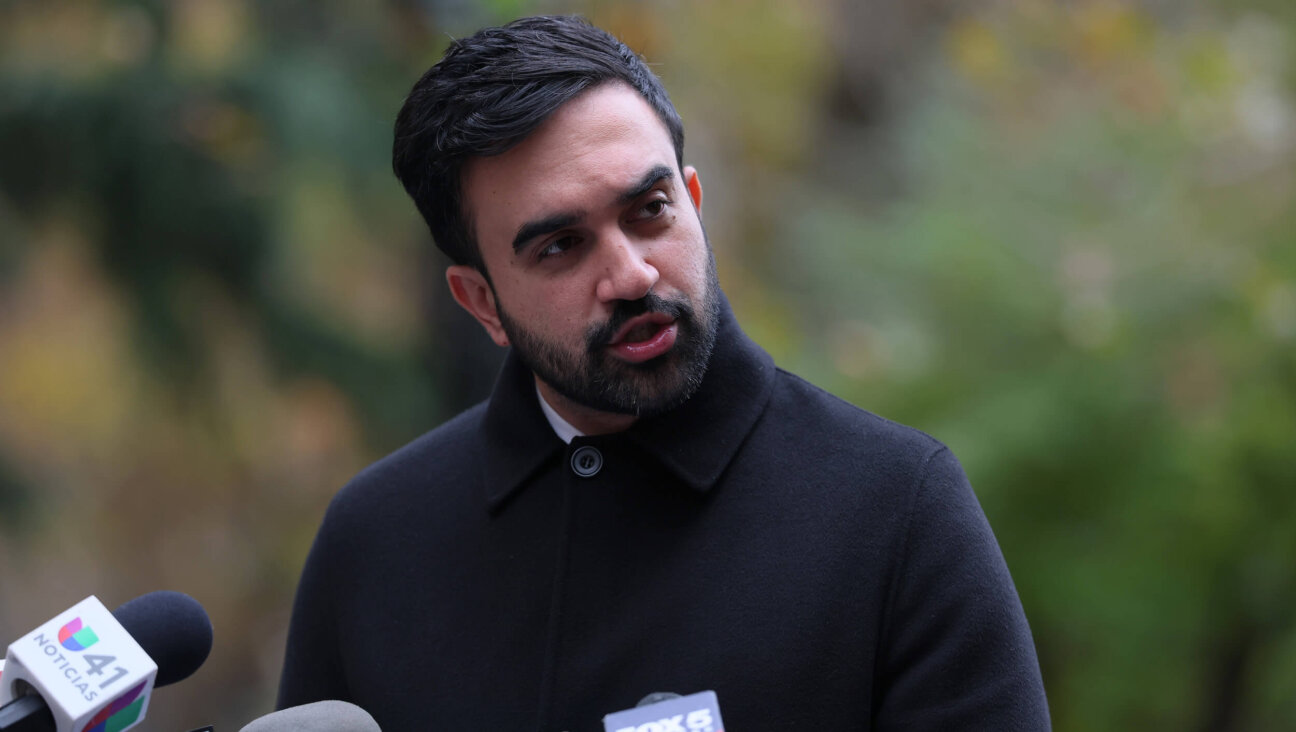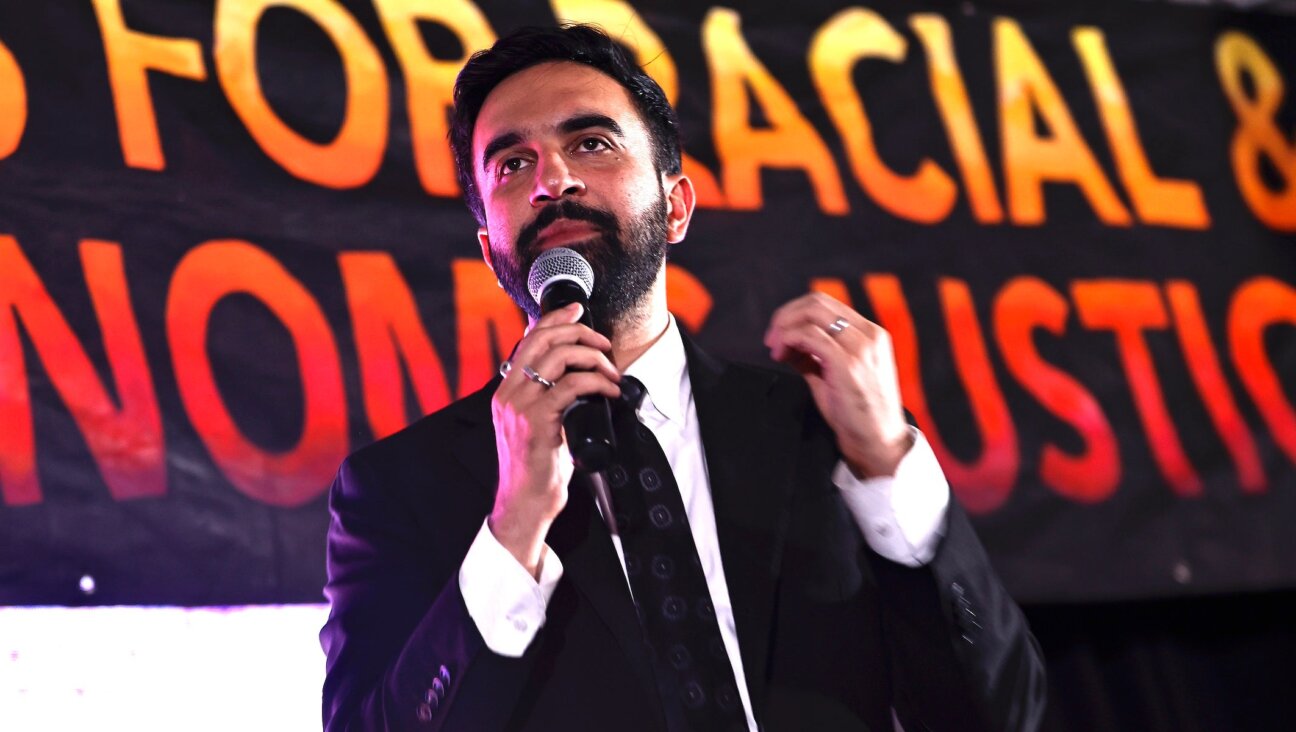Ilhan Omar Is Not Anti-Semitic. She’s An Anti-Imperialist.

Image by youtube
There are two stories this week about Rep. Ilhan Omar, the new Democratic congresswoman from Minnesota. But the trick is, you cannot understand one without the other. Let me explain.
First, she tweeted that Republican attacks on her and Rep. Rashida Tlaib were “all about the Benjamins.” Her suggestion that money heavily influences politicians’ positions on Israel (which is an obvious fact) was widely attacked as anti-Semitic, and she was forced to apologize. That story attracted massive attention — statements from Trump and cable network debates.
It’s all about the Benjamins baby ? https://t.co/KatcXJnZLV
— Ilhan Omar (@IlhanMN) February 10, 2019
Second, on Wednesday, she had a fiery, tense exchange with Elliott Abrams, Trump’s special envoy to Venezuela, over his involvement in atrocities and coups in Latin America in the 1980s. Somehow, I doubt this second story will get the same intensive coverage. And yet it is the far more interesting, surprising story — and without it, we have no chance of understanding the real dynamics of the anti-Semitism charges.
Ilhan Omar grilling Elliott Abrams on Iran-Contra and the US’s role in the 1981 El Mozote Massacre is a thing to behold.
Omar: I fail to understand why this committee should find any testimony you give today to be truthful.
Abrams: If I could respond—
Omar: It wasn’t a question. pic.twitter.com/SlatNliTHX— Jacobin (@jacobinmag) February 13, 2019
Some background: Trump has picked Abrams to advise him on how to respond to a right-wing coup in Venezuela against the democratically elected, but deeply unsavory, corrupt, and authoritarian Maduro regime. Observers worry that Trump means to back the coup, perhaps even militarily. The choice of Abrams confirms those worries, because in the 1980s, Abrams oversaw brutal, cold-war American colonialism in Latin America: support for the Guatemalan dictator Efrain Rios Montt as he butchered his own people, the cover-up of the El Salvadorian military’s murder of several hundred civilians in El Mozote, and the covert overthrow of the democratically elected Sandinista government in Nicaragua.
For his role in the Iran-Contra Affair, he pled guilty to two misdemeanors.
Elliott Abrams’ continued role in American foreign policy is a shanda, a scandal. But it is a normal scandal. The surprise is Omar’s line of questions — not just about Abram’s criminal record, but about his role in American war crimes.
Even the words she uses to describe American foreign policy is shocking: “Would you support an armed faction within Venezuela that engages in war crimes, crimes against humanity, or genocide,” she asked him, “if you believe they were serving U.S. interests as you did in Guatemala, El Salvador and Nicaragua?”
Such brutal, honest language about American foreign policy is rarely heard in Congress.
It is the language of committed anti-imperialism — of someone who views American foreign policy with sizeable suspicion, who does not assume that our military is virtuous, who is all too aware of the ugly work done by American proxy-states around the world.
Indeed, Omar’s foreign policy platform announces that she will “reduce total spending on the military,” “end sanctions and embargoes against countries” and renegotiate free-trade agreements to stop “multinational corporations [which] exploit working people.”
Moreover, she has attracted the wrath of the Saudi government, who fear she will attack links between the U.S. and Middle Eastern dictatorships. In other words, Omar is well outside the foreign-policy mainstream—in my view refreshingly. She would curtail the projection of American military power abroad, and she thinks America gets in bed with too many bad actors.
This context is crucial for understanding her policy and tweets about Israel, for two reasons.
Narrowly, arguments about supposed anti-Semitism often rest on the claim that critics single out Israel unfairly. There is some truth to this, because for the most part, American politicians do not question most of the horrible things that American money and troops do overseas. (Remember the catastrophic, pointless war in Afghanistan which has claimed more than 60,000 Afghani lives? Exactly one member of congress, Rep. Barbara Lee, voted against it in 2001.)
But it is totally unfair when applied to Omar.
She genuinely holds radical, risky views on all aspects of American foreign policy. She is opposed to violence against civilians in Latin America, in Yemen, and yes, in Gaza too. She believes the United States should end sanctions everywhere — not just against Iran, but against North Korea too. Say what you want about her foreign policy, but she is a peacenik and skeptic of American empire—consistently.
But beyond the question of her consistency, Ilhan Omar’s anti-imperialism is important because it heralds new possibilities in American politics—and a new conversation about Israel and Palestine.
While she is clearly on the left of the Democratic Party, there are reasons to think she is a vanguard, rather than just a fringe. For one thing, Senator Bernie Sanders advocates many of the same policies, albeit more moderately. Further, at the 2016 Democratic convention, his faction pushed the question of the Israeli-Palestinian conflict, long untouchable in U.S. politics.
More broadly, as Dov Waxman observes in his book Trouble in the Tribe, foreign policy in America has recently started to become a partisan issue, rather than a matter of collective consensus. Compared to twenty-five years ago, Republican and Democrat voters differ more sharply and coherently on foreign-policy issues. Space is opening for a foreign-policy Left, a politically viable anti-imperialism that has power within the Democratic Party.
Such anti-imperialists will necessarily be suspicious of AIPAC and of Israel. If you believe in cutting American military spending and reducing our presence abroad, you will hardly favor giving Israel three billion dollars in military aid every year.
If you are appalled by American-backed atrocities in El Mozote, you will likely be equally upset about civilians being mowed down on the Gaza border. If you use the word “occupation” to talk about America’s role in Iraq and Afghanistan, then you will use the same word to talk about the West Bank.
In short, the old rules may no longer apply. Much of the American consensus on Israel has rested on a broader agreement about American power and violence: that we are basically virtuous and good-intentioned.
Debates largely play out within ideologically narrow bounds — arguments between moderates and neo-conservatives over whether this or that intervention is wise, while the military budget slowly grows, the U.S. continues to support dictators and quiet wars, and so on. Debates about Israel remain largely between conciliatory liberal Zionists and rabid right-wingers, with the Left being pushed to the margins.
But things do not have to continue like this, and if the growing polarization of American politics continue, that fundamental consensus will crack. If it does, the argument about Israel and Palestine will shift radically.
Omar may, in short, have caved this time. This particular tweet came to seem indefensible: the pressure was too great. But it cannot continue like that. Her broader vision of America’s role in the world is simply incompatible with funding and arming the Israeli occupation.
Having taken clear, radical positions on American foreign policy, she simply will not be able to be “make nice” every time. And if 2020 is anything like 2018, and this nascent anti-imperialist group grows — well, then, she may not have to.
Raphael Magarik is a graduate student in English Literature at UC Berkeley. His work has appeared in The Atlantic and The Forward.















